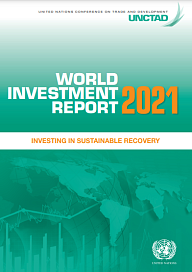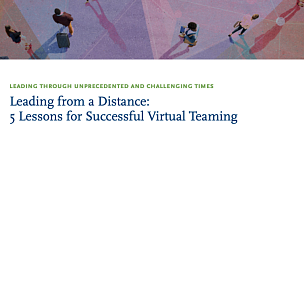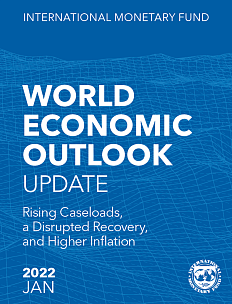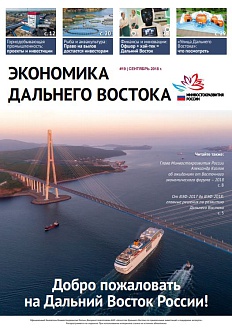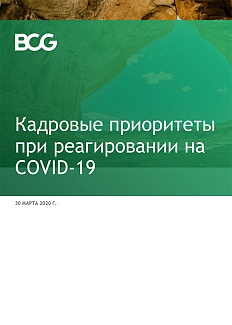The World Investment Report 2021 by UNCTAD deals with global and regional investment trends and national and international policy developments. The report also reviews investment in sustainable development and shows the influence of investment policies on public health and economic recovery from the pandemic.
The Roscongress Foundation presents the salient points of the publication accompanied by fragments of broadcasts of relevant panel discussions from the business programme of international events held by the Roscongress Foundation.
COVID-19 has had a negative effect on investment climate globally.
The COVID-19 crisis caused a dramatic fall in foreign direct investment (FDI) in 2020. Global FDI flows dropped by 35 per cent to USD 1 trillion, from USD 1.5 trillion in 2019. This is almost 20 per cent below the 2009 trough after the global financial crisis. The decline was heavily skewed towards developed economies, where FDI fell by 58 per cent. FDI in developing economies decreased by a more moderate 8 per cent, mainly because of resilient flows in Asia. As a result, developing economies accounted for two thirds of global FDI, up from just under half in 2019. FDI patterns contrasted sharply with those in new project activity, where developing countries are bearing the brunt of the investment downturn. In developing countries, the number of newly announced greenfield projects fell by 42 per cent and the number of international project finance deals — important for infrastructure — by 14 per cent. This compares to a 19 per cent decline in greenfield investment and an 8 per cent increase in international project finance in developed economies. The authors of the report specify that the impact of the pandemic on global FDI was concentrated in the first half of 2020. In the second half, cross-border M&As and international project finance deals largely recovered. But greenfield investment — more important for developing countries — continued its negative trend throughout 2020 and into the first quarter of 2021.
FDI trends varied significantly by region.
Developing regions and transition economies were relatively more affected by the impact of the pandemic on investment in GVC-intensive and resource-based activities. Asymmetries in fiscal space for the roll-out of economic support measures also drove regional differences. Among developed countries, FDI flows to Europe fell by 80 per cent. Flows to North America fell by 42 per cent. In the United States the decline was mostly caused by a fall in reinvested earnings. FDI flows to Africa fell by 16 per cent to USD 40 billion — a level last seen 15 years ago. Greenfield project announcements, key to industrialization prospects in the region, fell by 62 per cent. Commodity exporting economies were the worst affected. Meanwhile, flows to developing Asia were resilient. Inflows in China actually increased, by 6 per cent, to USD 149 billion. South-East Asia saw a 25 per cent decline, while FDI flows to India increased, driven in part by M&A activity.
Investment in health and sustainable development is actively encouraged.
Recovery investment plans in most countries focus on infrastructure sectors — including physical, digital and green infrastructure. Most countries actively encourage domestic as well as foreign investment in the health sector, according to an UNCTAD survey. While the pandemic has led some countries to increase oversight of health-sector investment, it has also led many governments to double down on efforts to encourage investment in the industry. Internationally, these efforts are complemented by market access and national treatment commitments for health services in the GATS and in some free trade agreements, and by treaty regimes for the protection of investment and intellectual property rights. However, low- and lower-middle-income countries face specific challenges that limit their capacity to attract investment in the health sector.
UNCTAD estimates that the value of sustainability-themed investment products in global capital markets amounted to USD 3.2 trillion in 2020, up more than 80 per cent from 2019. Most are targeted at assets in developed markets. Sustainability-themed funds continued their growth despite volatile markets in 2020. Their number increased to almost 4,000 by June 2020, up 30 per cent from 2019.
Gain more insights about investment and possible ways to stabilize the economy during a pandemic in the Investment climate, Foreign direct investment, Investment Management, and StayHomeEconomy sections of the Roscongress Information and Analytical System.


